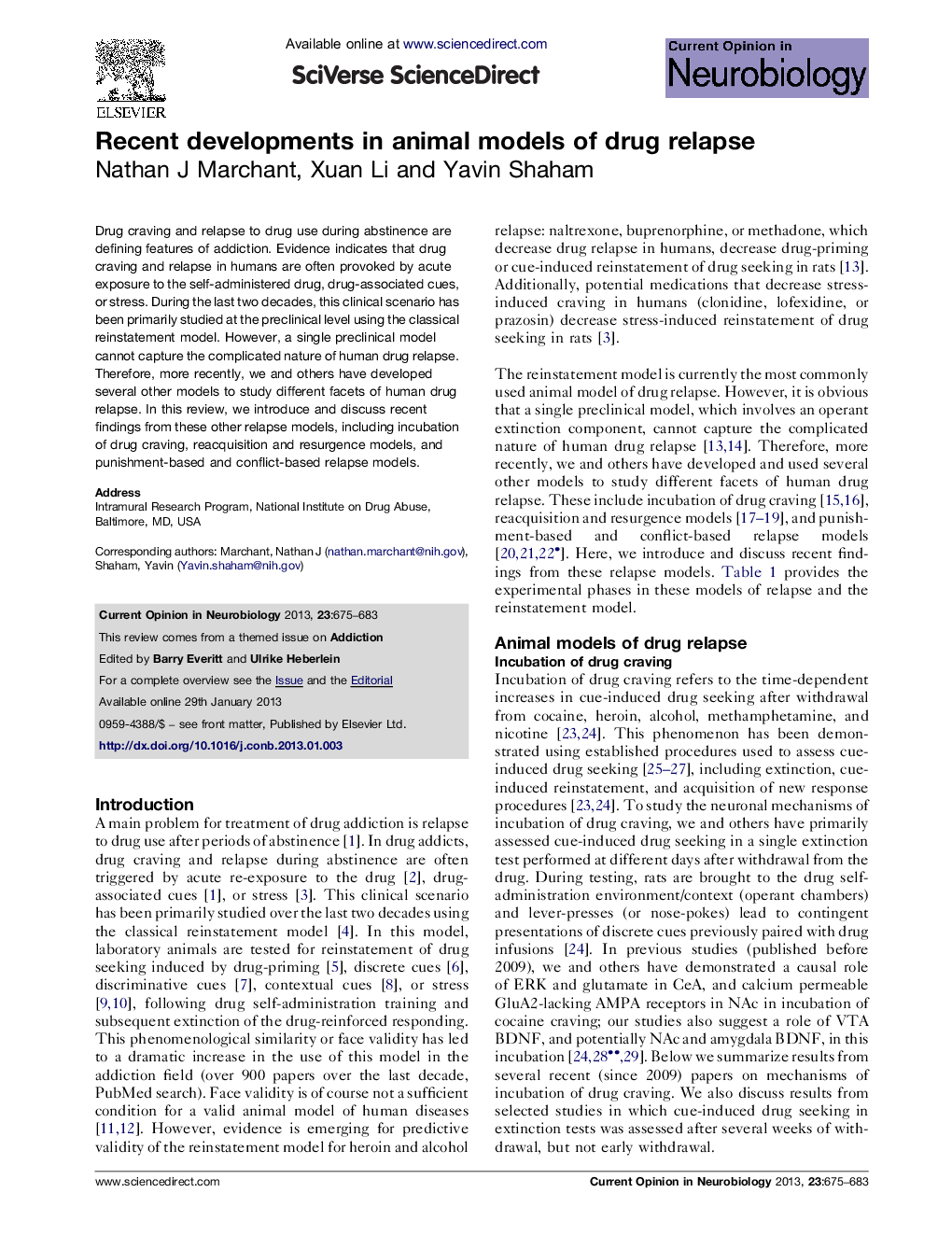| Article ID | Journal | Published Year | Pages | File Type |
|---|---|---|---|---|
| 6267140 | Current Opinion in Neurobiology | 2013 | 9 Pages |
Drug craving and relapse to drug use during abstinence are defining features of addiction. Evidence indicates that drug craving and relapse in humans are often provoked by acute exposure to the self-administered drug, drug-associated cues, or stress. During the last two decades, this clinical scenario has been primarily studied at the preclinical level using the classical reinstatement model. However, a single preclinical model cannot capture the complicated nature of human drug relapse. Therefore, more recently, we and others have developed several other models to study different facets of human drug relapse. In this review, we introduce and discuss recent findings from these other relapse models, including incubation of drug craving, reacquisition and resurgence models, and punishment-based and conflict-based relapse models.
⺠Drug craving and relapse to drug use during abstinence are defining features of drug addiction. ⺠Drug craving and relapse during abstinence are often provoked by acute exposure to drugs, drug cues, or stress. ⺠For many years, this clinical scenario has been primarily studied by using the classical reinstatement procedure. ⺠More recently, we and others have developed several other procedures to study different facets of human drug relapse. ⺠In this review, we introduce and discuss recent findings from these other relapse models.
